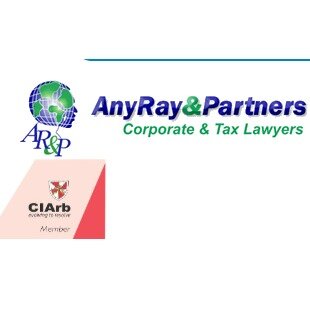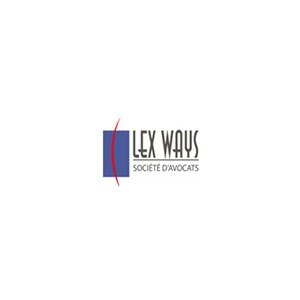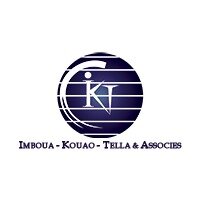Best Water Law Lawyers in Cocody
Share your needs with us, get contacted by law firms.
Free. Takes 2 min.
List of the best lawyers in Cocody, Ivory Coast
About Water Law in Cocody, Ivory Coast
Water law in Cocody, Ivory Coast governs the use, management, and protection of water resources, including rivers, lakes, groundwater, and rainwater. The legal framework is influenced by both national legislation and local municipal regulations. Water law regulates issues such as water allocation, pollution control, public and private rights over water, and the use of water for domestic, agricultural, and industrial purposes. Given that Cocody is a populous municipality within Abidjan, the management of water resources is crucial to public health, sustainable development, and environmental protection.
Why You May Need a Lawyer
There are a number of situations where seeking legal counsel in water law might be necessary in Cocody. Common scenarios include disputes over water rights or usage with neighbors and local authorities, issues concerning unauthorized water extraction or contamination, disagreements involving commercial development near water bodies, or penalties for breaches of water regulations. Additionally, if you are a business owner, developer, or NGO needing to navigate the permit process, understand compliance obligations, or manage the impact of your activities on local waterways, a lawyer can provide guidance and representation.
Local Laws Overview
The core legal instruments regulating water in Cocody stem from national water law, namely the Water Code of Ivory Coast (Code de l'Eau), complemented by municipal by-laws. These laws emphasize sustainable water use, prioritizing access to safe drinking water for citizens, controlling pollution, and protecting the environment. Permits are typically required for significant use of water resources, such as wells, irrigation, industrial activities, and construction near protected zones. The authorities enforce water quality standards and waste disposal regulations to prevent contamination of rivers like the Banco and Ebrié Lagoon, which are vital to Cocody. Local police and environmental agencies conduct inspections and have authority to issue fines or mandate corrective actions.
Frequently Asked Questions
What is the legal definition of water rights in Cocody?
Water rights refer to the legal entitlement to use water from rivers, lakes, wells, or other bodies. In Cocody, these rights are primarily controlled by national law, which distinguishes between public water (owned by the state or municipality) and private water (on privately-owned land, within limits and under regulation).
Do I need a permit to drill a borehole or well on my property?
Yes, residents and businesses must obtain a permit from the local water authority before drilling or operating a borehole or well. Failure to comply can result in penalties or closure of the borehole.
Can I be fined for polluting a water body in Cocody?
Yes, polluting rivers, lakes, or public water systems is prohibited under the Water Code and municipal regulations. Fines and corrective actions can be imposed by environmental enforcement agencies for violations.
Who is responsible for providing access to drinking water?
The state and local authorities are tasked with ensuring public access to safe drinking water, but homeowners and landlords also have obligations to maintain internal plumbing systems and prevent water wastage.
What are the regulations on water usage for businesses?
Businesses must comply with permit requirements for significant water extraction or discharge, follow waste treatment standards, and may be subject to inspections. Special rules may apply to sectors like construction, agriculture, and manufacturing.
How can I report illegal water use or contamination?
You can report suspected violations to the municipal environmental department or the relevant ministry. Provide as much detail as possible for prompt investigation.
Are there restrictions on building near rivers or wetlands?
Yes, construction projects near water bodies, including the Ebrié Lagoon and rivers, require authorization and may be subject to environmental impact assessments to safeguard public and ecological interests.
Is rainwater harvesting regulated?
Generally, rainwater harvesting for domestic use is encouraged but may still be subject to building codes or zoning rules. Large installations or commercial use could require notification or permits.
What legal recourse do I have if my water is polluted by a neighbor or business?
You may file a complaint with local authorities, seek administrative sanctions, or pursue civil action for damages and remediation depending on the circumstances and seriousness of the pollution.
What penalties apply for breaching water regulations?
Penalties range from fines and orders to restore damage to suspension of business activities or criminal prosecution for severe or repeated offenses.
Additional Resources
Those seeking more information or assistance may contact the following bodies:
- Ministry of Water and Forests (Ministère des Eaux et Forêts) - Responsible for water resource policy and regulation
- Municipality of Cocody - Local approvals, complaints, and permits
- Office National de l’Eau Potable (ONEP) - State drinking water authority
- Environmental NGOs operating in Cocody - Assist with advocacy and legal awareness
- Bar Association of Côte d’Ivoire - Directory of qualified water law lawyers
Next Steps
If you require legal assistance with a water law matter in Cocody, start by gathering relevant documents such as permits, correspondence, or official notices. Consult with a specialized lawyer who understands water law and local procedures. You may wish to contact the municipality, appropriate ministry, or a community legal aid center for preliminary advice. Clearly outline your issue, desired outcome, and provide supporting evidence. Legal timelines and appeal periods can be short, so act promptly to protect your interests and comply with regulations.
Lawzana helps you find the best lawyers and law firms in Cocody through a curated and pre-screened list of qualified legal professionals. Our platform offers rankings and detailed profiles of attorneys and law firms, allowing you to compare based on practice areas, including Water Law, experience, and client feedback.
Each profile includes a description of the firm's areas of practice, client reviews, team members and partners, year of establishment, spoken languages, office locations, contact information, social media presence, and any published articles or resources. Most firms on our platform speak English and are experienced in both local and international legal matters.
Get a quote from top-rated law firms in Cocody, Ivory Coast — quickly, securely, and without unnecessary hassle.
Disclaimer:
The information provided on this page is for general informational purposes only and does not constitute legal advice. While we strive to ensure the accuracy and relevance of the content, legal information may change over time, and interpretations of the law can vary. You should always consult with a qualified legal professional for advice specific to your situation.
We disclaim all liability for actions taken or not taken based on the content of this page. If you believe any information is incorrect or outdated, please contact us, and we will review and update it where appropriate.












